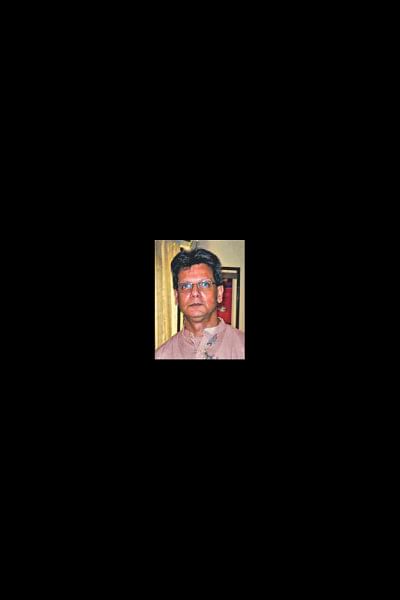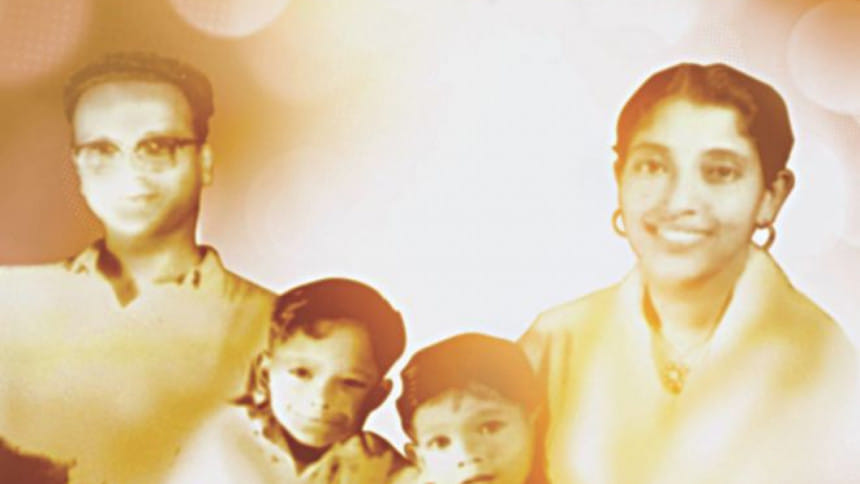They can now rest in peace
It was a phone call that gave words to a long endured pain and wait.
Perhaps that is why Saif Imam Jami called back from a different time zone, taking time out of his busy office hours.
Yet Jami, the only living member of martyr Rumi's family, did not talk about his personal contentment regarding the verdict in Ali Ahsan Mohammad Mojaheed's case that was delivered on July 17, 2013.

Like his brother martyr Shafi Imam Rumi and mother Shaheed Janani Jahanara Imam, he expressed satisfaction over the verdict because it took into account the massacre of intellectuals in 1971.
Rumi had foregone a bright career and sacrificed his life for the motherland, while his mother, unheeding of fatal cancer, continued her struggle until the last breath to bring the war criminals to book.
"I am happy about the verdict, not because it is about my brother and his co-fighters, but more importantly because he [Mojaheed] has been given death penalty for the mass killing of intellectuals," Jami told The Daily Star over the phone from the USA.
"Their [the intellectuals'] souls need to rest in peace. No one has fought for them," he added.
Mojaheed, convicted of murder, torture, and imprisonment of people and conspiring to kill intellectuals during the Liberation War, has been held responsible for the death of guerrilla freedom fighter Rumi.
He was found guilty on charge-5, related to the killing of Rumi, Badi Jewel, Azad and Altaf Mahmud at the army camp set up in Nakhalpara, Dhaka, during the Liberation War.
The Pakistan army arrested Rumi along with his father Sharif Imam and younger brother Jami at their house on Elephant Road, Dhaka, on August 29, 1971.

The valiant freedom fighters were confined to and tortured for information at the army camp in the old MP hostel in Nakhalpara.
On August 30, 1971, Mojaheed went there with another Jamaat-e-Islami leader, Matiur Rahman Nizami, and told an army captain that the detainees would have to be killed before the proclamation of clemency by the president.
Mojaheed's advice intensified the torture on the detainees. The bodies of the detainees could not be found even after liberation on December 16, 1971.
Taking this into account, the Tribunal in its verdict said, "by the act of being present at the army camp and behaving brutally with detained victims even in presence of army official and providing 'advice' to liquidate the victims before the President's clemency came into effect, as stated by P.W.2, inevitably formed part of attack which had substantial effect to the actual commission of the crime committed by the principals and as such he [accused] was 'concerned with the commission' of the killing alleged in charge no. 5."
After liberation, Rumi's mother Jahanara Imam's diary that was maintained during the Liberation War was published as "Ekattorer Dinguli".

It became an important yet heart-rending documentation of our Liberation War. A copy of the book was also submitted at the International Crimes Tribunal as an exhibit.
Rumi, who later became the symbol of valiant guerrilla freedom fighters, is believed to have been executed along with the other detainees on the night of September 4, 1971.
His father Sharif Imam did not survive the burden of the physical torture inflicted upon him during his detention at the army camp. He died from a cardiac arrest on December 13, 1971.
Jahanara Imam, however, did not allow her personal loss to weaken her quest for justice when the war criminals began to return to the political scene of the country.
She rather gave rebirth to a movement demanding the trial of war criminals.
The movement began in January 1992 after Ghulam Azam, then a Pakistani citizen, was appointed Jamaat chief in December 1991.
It soon turned into a mass movement and led to the formation of a People's Court, where Ghulam Azam, the mastermind of the atrocities during the war, was tried.
The then BNP government took a hardline against the court and filed a sedition case against its 24 organisers, including Jahanara Imam.
Jahanara Imam died in 1994 with the burden of the sedition charge. The case was withdrawn around two years later when Justice Habibur Rahman-led caretaker government was in office.
Thirty nine years later, the AL-led 18 party alliance began the much-awaited trial of war criminals. Till date six war criminals, including Mojaheed, have been convicted.
Though Mojaheed has been found guilty, according to Jami, justice remains incomplete until the verdict is carried out in the shortest possible time.
"After giving them death sentence, they cannot be kept in prison for years, that is not justice," he said.
(This article was published on Thursday, July 18, 2013, a day after a war crimes tribunal sentenced Mojaheed to death for his crimes against humanity during 1971)

 For all latest news, follow The Daily Star's Google News channel.
For all latest news, follow The Daily Star's Google News channel. 



Comments